
Indian cities have a key role in realising the country’s ambitious economic, developmental and environmental goals. However, given the serious legacy and emergent challenges they face, there is need for reflection on agendas Indian cities need to prioritise and pursue.
Discussions during the IIHS Urban Policy Dialogues (UPD) 2022 will explore Pathways towards Future-ready Indian Cities. The focus will be on five themes that will determine the preparedness levels of Indian cities to power rapid, equitable, and sustainable growth and development.
Indian cities have a key role in realising the country’s ambitious economic, developmental and environmental goals. However, given the serious legacy and emergent challenges they face, there is need for reflection on the development agendas they need to prioritise and pursue.
Discussions during the IIHS Urban Policy Dialogues (UPD) 2022 will explore Pathways towards Future-ready Indian Cities. The focus will be on five themes that will determine the preparedness of Indian cities to power rapid, equitable, and sustainable growth and development: next generation urban governance; improving municipal finances; synergising land governance and real estate regulation; accelerated urban infrastructure and service delivery; and, decarbonisation.
As before, UPD will bring together select participants from government, civil society, the enterprise sector, academia, and other spheres of practice and aim at frank exchanges on how cities can be reoriented to deliver on the rich possibilities they represent. All conversations will be governed by Chatham house rules.
UPD 2022 is the 8th edition of IIHS’ Urban Policy Dialogues.
The Contours of Next Generation Urban Governance
India’s 75th year since Independence presents an opportunity for transformational governance reform. If Indian cities are to fulfill their role as engines of sustainable development, they need improved structures and processes of urban governance. The implementation of the 74th Constitutional Amendment has fallen short of expectations and not ensured genuine devolution in line with the subsidiarity principle. There have been significant gains, but meaningful empowerment in terms of the assignment of functions has proved elusive.
The proposed discussion will focus on what can be done to make the next generation of urban governance more representative, more responsive, and meaningfully empowered.
Municipal Finances – The Way Forward
The state of municipal finances in India has been a long-standing concern. Pandemic-time experiences and an increasing appreciation of the potential cities hold, as sites of economic and social interaction and innovation and, therefore, as engines of sustainable development, has added urgency to this agenda.
The proposed discussion will focus on key strategies being contemplated to improve municipal finances, teasing out lessons from past efforts and debates, and identifying levers for future movement.
Creating Synergies – Land Governance and Real Estate Regulation
Improved and transparent land information systems have the potential to impact municipal finance, inclusive development planning, real estate development, and overall economic growth. There have been noteworthy steps in this regard over the years at both the Union and State levels, especially in rural India. There are critical learnings from the rural experience that can be useful for improving tenure security and property records in urban and peri-urban areas. Yet, such synergies appear difficult to realise and successfully implement at scale. This also needs to be implemented to address the preference for prescribed standardised solutions and in a manner responding to local urban or peri-urban contexts.
The proposed discussion will focus on lessons from past efforts, and ways to improve coordinated action across land and property governance, especially in urban and peri-urban areas.
Accelerating Urban WASH for SDG 6
Water and sanitation are key components of sustainable development, and SDG 6 lays out ambitious targets for achieving universal access and beyond. With several countries lagging on SDG 6, the 2023 UN Water Conference will comprehensively review progress on SDG 6 and agree on an agenda for achieving it.
Urban India reports notable progress on SDG 6, enabled through national missions, state programmes, and city specific initiatives. Yet, gaps remain, particularly in the face of climate change and a rapidly deepening national and global water crisis. This is an opportune time to deliberate on the way forward for urban India to meet SDG 6 and what priorities and big picture ideas India would like to see reflected on the global stage.
The proposed discussion will focus on key enablers for the progress urban India has registered on SDG 6; what remains to be done to achieve SDG 6; and, what lessons the Indian experience hold for other countries.
Decarbonising Public Transport in India
Demographic shifts, changing aspirations, and mobility demands emerging out of economic activity have been key drivers of transport demand in urban India, which is often inefficient, carbon intensive and fossil-fuel dependent. In addition, climate extremes pose a serious risk to current transport infrastructure and economic activity.
Public transport systems powered by cleaner fuels or clean electricity have been recognised as an important element of a coupled decarbonisation-development strategy. However, implementing a rapid shift towards public transport, particularly bus-based systems, in Indian cities has been challenging.
The proposed discussion will focus on exploring key dimensions of a bus-oriented public transport system as a critical decarbonisation and development strategy.


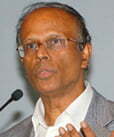




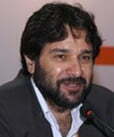






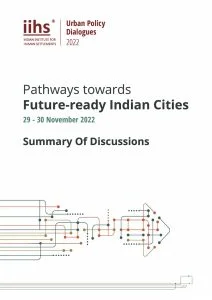
Summary Of Discussions
An annual flagship event of the Indian Institute for Human Settlements (IIHS), the UPD brings together select participants from diverse spheres of action to reflect on a bolder, more sustainable, and more equitable urban transformation agenda for India. The first edition of the UPD was held in 2014, as the second generation of the country’s flagship urban policies were being formulated.
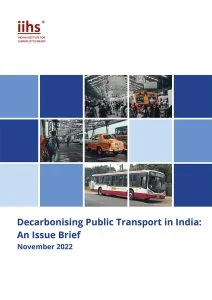
Decarbonising Public Transport in India: An Issue Brief
Sustainable urban transportation systems are a key defining element of sustainable urbanisation. This calls for simultaneous pursuit of the agendas of decarbonisation, sustainable development, and resilient transport infrastructure.

Indian Municipal Finance 2022: An Update
Urban India currently accounts for a third of the country’s population and nearly two thirds of its economic output (IIHS, 2015; IIHS, 2017; Ministry of Health & Family Welfare (MoHFW), Government of India (GoI, 2020). By 2030, its share of India’s population and economic output is projected to be as high as 40 per cent and 75 per cent, respectively (MoHFW, GoI, 2020; Ministry of Urban Development (MoUD), GoI, 2015).
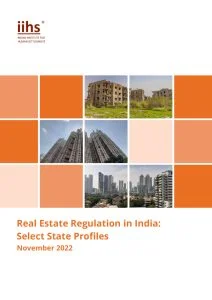
Real Estate Regulation in India: Select State Profiles
India’s Real Estate (Regulation and Development) Act, 2016 (hereinafter, RERA Act or the Act) was brought in to promote and better regulate the country’s real estate sector. It aimed at bringing transparency and efficiency in the sale of apartments or plots, protecting the interest of real estate consumers, and establishing an adjudicating mechanism for speedy dispute redressal. The Act was widely hailed for attempting to regulate a large and largely unregulated sector where consumer investments were substantial and grievances were high.
